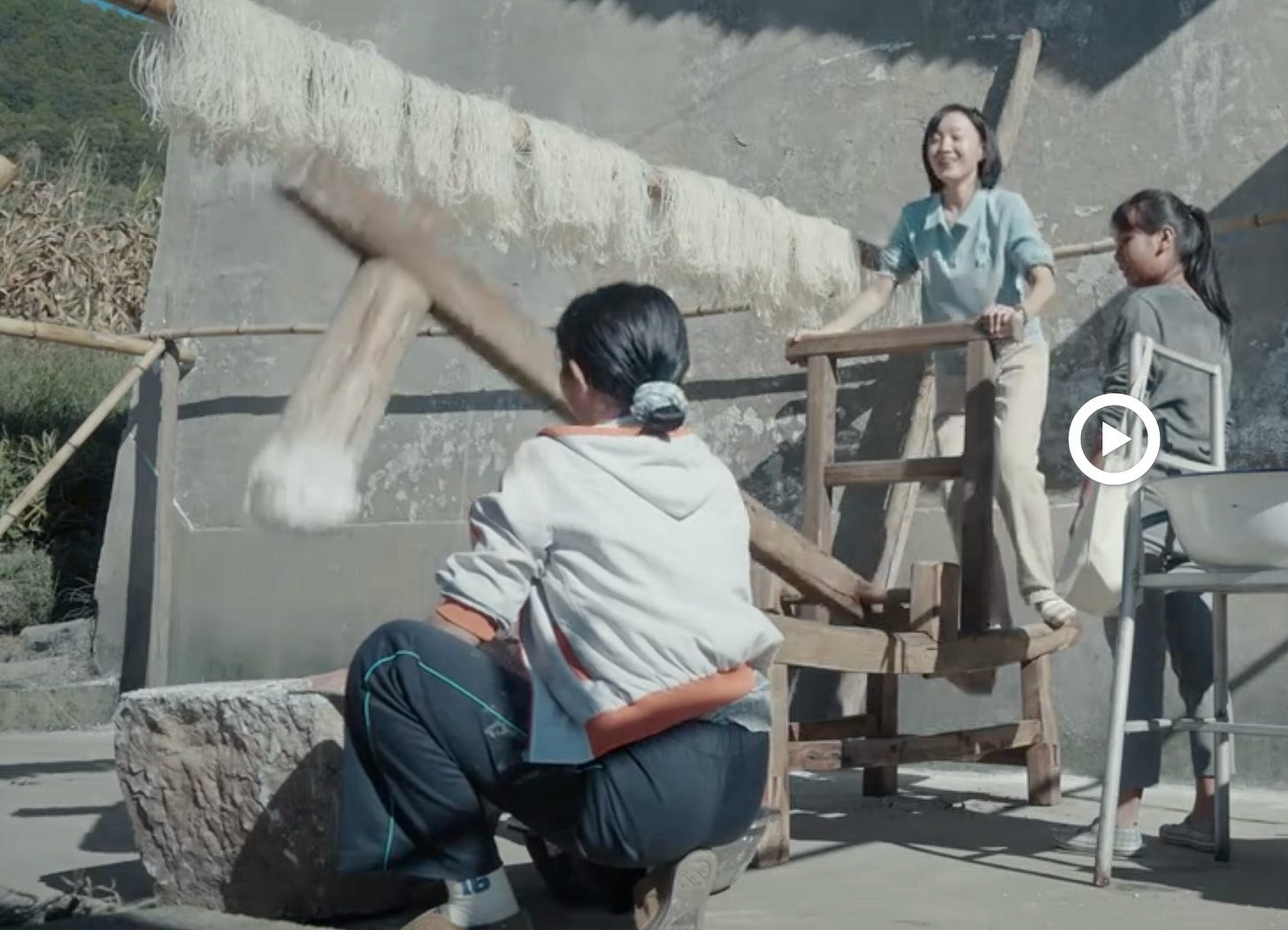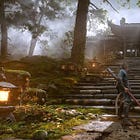Radiooooo: A Cosmopolitan Dreamland
More and more of my listening this year has shifted away from Spotify. As big a fan I am of AI, I’m sick of Spotify degrading artists and albums in favor of mixes and playlists by ghost musicians. In its place for me has come the magical website and app Radiooooo.
Radiooooo takes human-submitted tracks, categorizes them by country and decade, and lets you explore. On their whimsical global map, you can either let their algorithm take you on a world tour, or you can decide that today’s the day to spend an hour with the tunes of pre-revolutionary Iran.
Most of the world maps I look at reflect geopolitical competition, but Radiooooo’s map flips that on its head, using music across time to show how cross-pollinated we are. The selection is biased towards selections that show global influence, and it is so cool seeing that global influence! Japan had excellent do-wop in the 1970s! A Swedish singer in 1959 made a song about Puerto Rico! A calypso song from Hong Kong in 1960! Soviet crooners from the early Brezhnev era! Radiooooo is a life-affirming reminder that joy and creativity persist even in decades of dictators and war.
Beethoven provided my other favorite listening experience of the year. Norman Lebrecht’s Why Beethoven: A Phenomenon in One Hundred Pieces is a brilliantly written collection of short essays, which introduce, in some creative oblique way, a Beethoven composition in just a few pages.
Chinese TV
再见爱人 See You Lover — China’s “Road Rules for Divorce” show — is a reality show where three celebrity couples all married for at least ten years and on the verge of divorces take an 18-day road trip together. It is some of the most gripping content I’ve ever seen. Discussed here and with
on the podcast episode below. It’s the year’s only must-watch piece of Chinese content.Over the course of the show, you get to watch modern Chinese women wake each other up to the fact that they can demand more from their neglectful and abusive husbands through an interplay of independent earning power and global feminist ideas (filtered primarily through Japanese writers). Score: 9.8/10
欢乐家长群 Growing Together — this light series is about four couples in Beijing raising young children, and the drama that takes place through a parent’s WeChat group. Contemporary marital drama is much more engaging in 再见爱人, but this show is a sanitized window into how rich parents try to raise their kids in a post-cram school era where prioritizing self-actualization holds some weight relative to academic achievement. Score: 7.5/10
I got four episodes into 大明王朝1566 before getting overwhelmed. It’s quality content that requires real attention, which paternity leave did not allow for. Will try again this year!
山花烂漫时 She and Her Girls [they should just let me name these shows, this is awful] is a dramatized true story of a teacher who founded an all-girls high school in a poor rural village.
It’s a high quality drama and illustrates why top flight Chinese dramas have a hard time finding footing internationally. In one episode, the teachers start jumping ship because of bad working conditions and low pay. The only ones who stick around are the Party members — who use the power of red songs to get their kids to study. It’s a lot to stomach. Chinese audiences understand that elements like these are non-negotiable if you want to make a show showcasing the reality of modern poverty, but it causes global audiences to tune out.
“In the war against the Japanese, as long as there is one Party member, there’s no way that group would lose ground. Today I learned we have six teachers who are Party members. Could it be that we lose ground for the Party at this women’s high school? The long march was so long, I know this semester will be hard, but not that hard! This semester let’s all review again the Party Membership Oath. Before we were colleagues, now we are comrades. 之前我们是同事,现在我们是同志!”
Ep 5 is the standout episode for me where the teachers go out into the countryside to recruit students only to encounter desperate poverty preventing these girls from studying. It’s a refreshing departure from the normal poverty porn you see in food shows like Bite of China.
Other themes include:
A morally complex protagonist! Usually in a propaganda-boosted storyline like this, with someone sacrificing their personal life for poor people, the main character gets turned into Mother Teresa. In this show the teacher is proud — and resentful of the students who still rebel when given the opportunity.
The real importance of the gaokao — ep 19 opens with a dream sequence of everyone getting super high test scores (which doubles as satire of traditional gaokao shows), and closes with a speech by the lead teacher about why the gaokao isn’t absolutely everything. The show illustrates how deeply that exam pressure has traumatized these girls, and by the next episode the head teacher is back to stressing everyone out about test scores. College is the only social mobility path for these rural youth, but if you don’t get accepted anywhere, at least you didn’t have a child at 14!
Alcohol — being raised by alcoholic parents contributes to a lot of the girls’ misery, but the founder of the school still uses booze to bond with teachers and schmooze donors and officials.
Bureaucracy — we run into unhelpful lower level officials, only to of course find an understanding higher-up who swoops in to save the day once the protagonist remonstrates and proves their worthiness.
Other TV
Culinary Class Wars — Koreans with nice “Great British Bake Off” vibes cooking food that’s novel to me. Funny how the “Chinese-style” Korean chefs all have a very flat interpretation of Chinese cuisine. Most remarkable is the star judge, Korea’s first three star chef. He has a crazy backstory:
Anh was born in South Korea but moved to the United States in 1993 at the age of 12. He grew up in California where his parents ran a Chinese restaurant. He enlisted in the US Army after high school, and after the September 11 attacks and the start of the Iraq War, asked to serve in Iraq. Anh served as a mechanic, where he helped fuel combat vehicles like helicopters and tanks. After his Army service, Anh was set to attend mechanic school to become a Porsche mechanic. After seeing a group of culinary school students walk by in chef coats, however, Anh changed course and enrolled in culinary school.
Score: 8.3/10
Industry Season 3 — this show is fun, but it’s no Succession. Score: 7.8/10
Sports
Most of the ‘make you gasp’ moments I have following professional sports are surprises about how awful things can get. On a weekly basis for years now, Josh Allen, QB of the Buffalo Bills, has delivered these moments. Watching him is balletic — his invincibility lets you forget all the crushed bodies left in the NFL’s wake.
Dipping into independent fan podcasts after big games or trades is one of my great pleasures. The best sports drama arc of 2024 were the Mets gloating at the Soto signing.
In an increasing number of sports, women’s competition offers the superior viewing experience. This was especially apparent watching the Olympics this year. For men’s indoor volleyball, the jump serves result in too many out serves and dead time, but the women’s game has more action and dramatic points. The same goes for women’s tennis, where Caitlin Clark is a highlight. However, the WNBA is still a little too slow for my taste.
I started playing soccer in adult leagues in NYC this year! It would be fun to get a ChinaTalk team going if there’s any interest…
Movies
We’ve since learned that ChinaTalk doesn’t only get people promoted, it also gets them cast in movies! Phil spent this fall as one of Adam Sandler’s four sons in Happy Gilmore 2. He’s also the lead in an excellent play currently on in Atlanta from March 29 to May 4th.
Billy Madison — the teacher deciding to go out with Billy Madison after he gropes her on the bus is a little bit of a stretch…
Happy Gilmore — I had more fun with this one than Billy Madison. Do they not make short dumb well-made movies anymore, or do I just not watch the ones that come out?
抓娃娃 ‘The Successor’ (2024) — this is one of China’s top grossing movies of the year. The Successor is a ‘Truman Show’ where rich parents decide to raise their child in poverty after spoiling their first kid while training him to take over the family’s business empire. It was interesting to see the backlash to tiger parenting across this movie and the parents WeChat group show. You can stream this movie on Iq.com with English subtitles! Score: 8.8/10
The Divorcee, 1930 — I went on a 1920s kick, which led me to Ursula Parrot’s epic 1929 novel Ex-Wife and its 7.1/10 movie adaptation. The best discovery was this labor of love website, pre-code.com, that I’m excited to dive deeper into.
Anora — I fell asleep in second act. Score: 7.6/10
Video Games
Elden Ring (Levels 60-85)
Parenting an infant considerably shrinks your physical universe — before I became a parent, I was traveling twice a month. Returning to Elden Ring helped me feel less claustrophobic as I made the transition to life within a 5-block radius.
This game is the perfect experience for the pre-VR/AI world, and a marvel of human creativity.
One day I went to the Met Museum after a few hours of playtime, and thought, “Elden Ring’s world is more beautiful and striking than half of these landscapes.” There are few experiences in content consumption quite as satisfying as beating an Elden Ring boss on the 7th try. There were a few times in the past year, in real-life contexts, that I opted to beat “a boss” creatively instead of beating my head against a wall trying the same thing over and over again. Perhaps you could credit my “Elden Ring brain” with helping me find lateral solutions to these problems.
Fromsoft’s triumph is a testament to the magic of maintaining a singular focus on honing a craft for decades. Sure, hardware could not handle something as ambitious as Elden Ring in the past, but the gameplay and design heights of Elden Ring would not be possible had the developer not already made six games in the ‘Soulslike’ genre.
Even if you’re not a big video game person, I’d really encourage you to try to experience the game for yourself. If there’s no chance you will, consider watching this video:
Magic the Gathering: Bloomburrow Quick Drafts
It’s dark magic. Doing drafts gives you slot machine randomness with just enough brain-engagement to trick you into thinking it’s an intellectual activity. Deck-building is genuinely interesting, but then you’re back to casino-like brainstem stimulation during actual gameplay. Generally, there are only one or two moments in each game where you’re rewarded for thinking. The beauty of playing on chess.com is that the apps have a direct feedback loop to teach you how to improve after each mistake you make, which doesn’t exist in MTG Arena.
Von Neumann has a great quote comparing chess and poker: “Chess is not a game. Chess is a well-defined form of computation. You may not be able to work out the answers, but in theory there must be a solution, a right procedure in any position. Now, real games are not like that at all. Real life is not like that. Real life consists of bluffing, of little tactics of deception, of asking yourself what the other man is going to think I mean to do. And that is what games are about in my theory.”
Maybe in-person magic has that in-person bluffing aspect coupled with the feedback of learning by chatting after the games — but playing online has left me hollow. After spending down $20 in gems, I blocked the game.
Black Myth: Wukong.
If you’re looking to appreciate the artistry of the game without having to git gud, check out this 4k bilibili playthrough.





